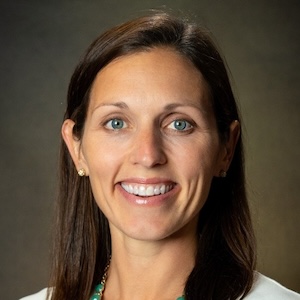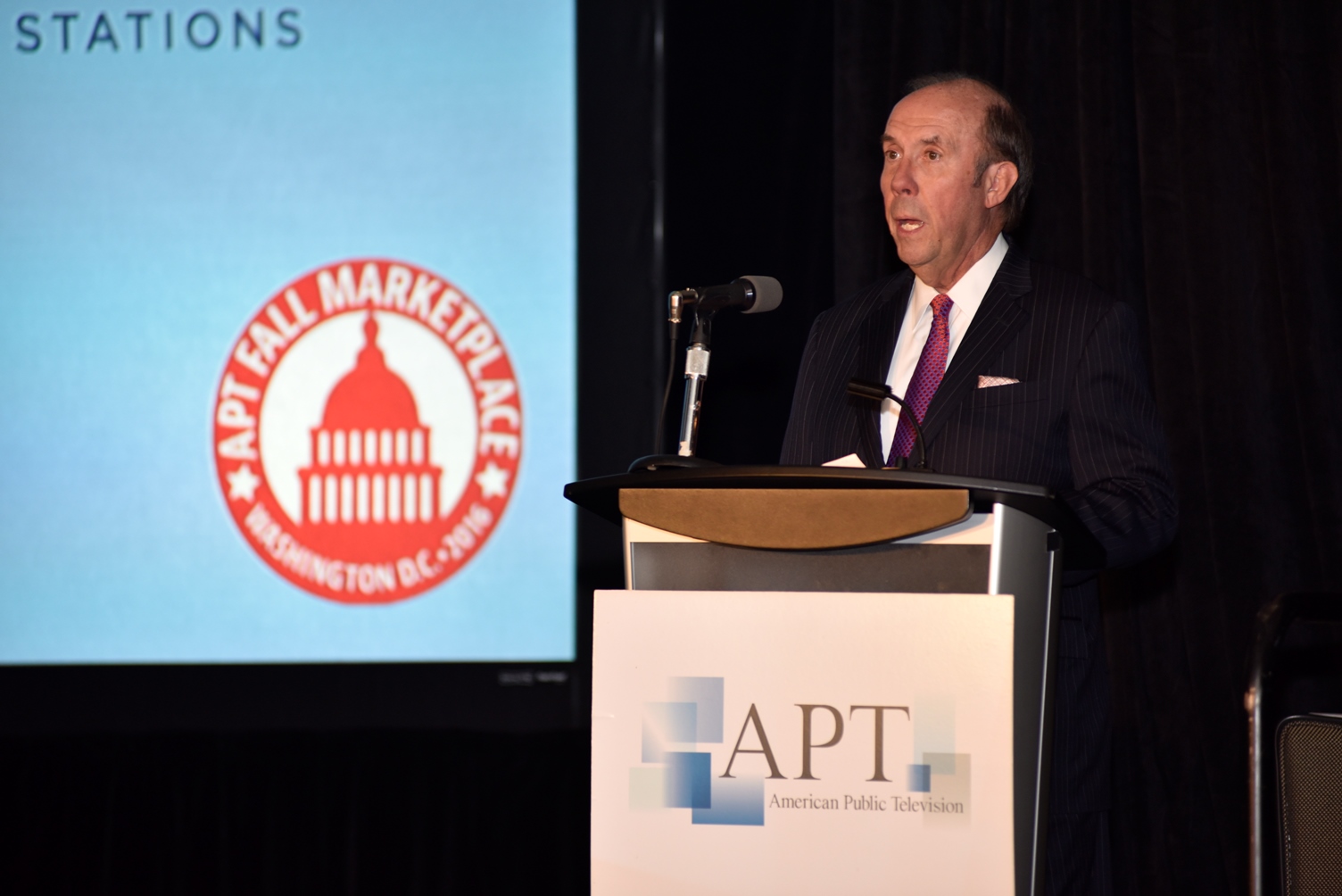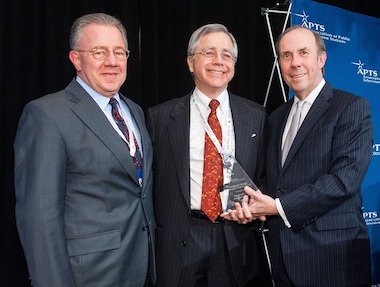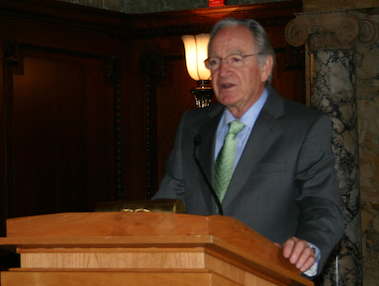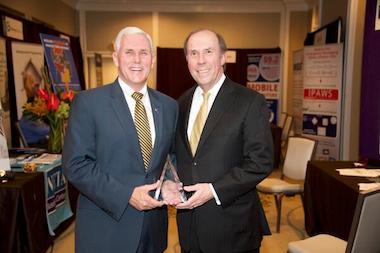Tag: APTS
APTS affiliate will now be sole manager of Protect My Public Media
The American Coalition for Public Radio launched its goACPR.org campaign in May with messaging more closely tied to public radio.Kate Riley named CEO of America’s Public Television Stations
Riley, who joined APTS in 2010, was the board’s unanimous choice to succeed retiring CEO Pat Butler.NPR urges FCC to improve incentives for public stations to invest in local journalism
The commission's proposal to boost localism in broadcasting won't make a significant difference to public radio, according to comments filed by NPR.APTS president predicts strong support in D.C. after election
Patrick Butler spoke Friday at the annual Fall Marketplace sponsored by distributor American Public Television.Analysts call for change in pubTV workforce, culture under ATSC 3.0 standard
Under the new standard, television will become “a key part of a network infrastructure in the home,” according to consultant Vinnie Curren. ...APTS recognizes politicos, pubcasters with awards at annual Summit
APTS awarded the David J. Brugger Lay Leadership Award to Hilma Prather of Kentucky Feb. 22 at its Public Media Summit in ...APTS restructures to support strategic goals for state-level advocacy, public service
The Association of Public Television Stations has restructured its staff to align with recently adopted strategic goals, including efforts to promote best ...SABEW honors biz news, Michiganers land MAB awards, and more recognition for pubcasters
SOCIETY OF AMERICAN BUSINESS EDITORS AND WRITERS Pubcasters honored with SABEW Best in Business awards. NPR’s coverage of the “Health Care Website Launch” was ...This Capitol Hill Day, pubmedia “not in the crosshairs”
With pubcasting no longer a political football, station reps meeting with lawmakers started off on better footing this year.Champion of Pubcasting honors go to Indiana conservative
Indiana Gov. Mike Pence put pubcasting funding in his first state budget in 2013, the first time an Indiana governor had done ...In spectrum auction decisions, weigh the value of public service
With the unique opportunity presented by the auctions, proper due diligence certainly requires PTV leaders to weigh the potential one-time upside from ...APTS chief rebuts FCC chairman on technical limits of channel-sharing
In an exchange with FCC Chairman Tom Wheeler, public television’s top lobbyist sought to dial back expectations for channel-sharing pilot tests involving ...APTS chief sees renewed battle over CPB aid
APTS President Patrick Butler is warning public broadcasters of continued threats to their federal funding this summer as Congress takes up work ...Obama would maintain CPB funding, eliminate rural digital grants in 2014 budget proposal
President Obama released his fiscal 2014 federal budget proposal April 10, and recommended $445 million in two-year advance funding for CPB. This ...New talking point on Capitol Hill: PubTV’s role in education
Public television’s strongest case for preserving tax-based support for stations and CPB centers on informing political leaders about the full range of ...



